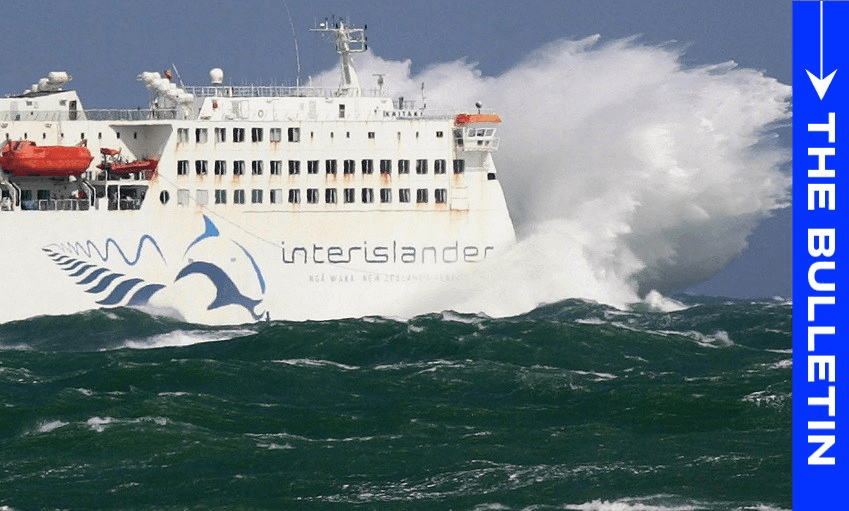As the cost of yet another big infrastructure project blows out, the government stamps its mark by saying no to more funding for the Interislander ferry replacement project, writes Anna Rawhiti-Connell in this excerpt from The Bulletin, The Spinoff’s morning news round-up. To receive The Bulletin in full each weekday, sign up here.
Government declines KiwiRail request for an extra $1.47b for ferries
As Catherine headlined on Monday, 2024 will be make or break for for New Zealand infrastructure. While the Interislander ferry replacement programme isn’t completely broken, it has been left dangling. Finance minister Nicola Willis announced yesterday that the government had declined KiwiRail’s request for an extra $1.47b for the portside infrastructure needed for the new mega-ferries. Willis said Kiwirail was effectively paying for a “Ferrari… and now we’re going to go off and see whether there are any good reliable Toyota Corollas available” to cut costs. Marlborough’s mayor, Nadine Taylor, says the decision will be a shock to people in Picton. As BusinessDesk’s Oliver Lewis reports (paywalled), the decision creates uncertainty around the future of the Cook Strait crossing and leaves KiwiRail with a hole in its emissions reduction targets.
First big call, entire state sector ‘on notice’
As The Post’s Luke Malpass notes, the Ministry of Transport and Treasury had advised against proceeding with the additional funding request. Malpass writes that the government’s “first genuinely big decision” means the “entire state sector is now on notice that building programmes, projects, lurks and policies out of step with the new regime will be cancelled, changed, pared back.” Only time will tell, he writes, as to whether the decision “is penny wise but pound foolish”. BusinessDesk’s Pattrick Smellie argues (paywalled) that the government has made the right call. Smellie notes that the push for “an upgrade that required ferries big enough to accommodate rail freight rather than use globally conventional roll-on/roll-off technology” came from Winston Peters and Shane Jones when NZ First was in coalition with Labour between 2017 and 2020.
Why do costs on these big projects always blow out?
In September, BusinessDesk journalists (paywalled) tackled the question of why infrastructure projects are seemingly always “over budget, over time, under benefits, over and over again” (to quote Danish academic Bent Flyvbjerg). It is a very good series if you want to spend the holidays reading. As Oliver Lewis summarises (paywalled), it is, in part, due to the perception problems created when projects are announced for political reasons, sometimes prematurely, with no thorough costings or formalised funding commitments but a figure attached. The remaining reasons are unspeakably reasonable for those seeking to shake their fists about project failure and cost blowouts. Complexity, change, and risk management are all features. Nonetheless, it still leaves this small country with aging infrastructure and the question of how to replace it while also investing in the future.
Champagne tastes on a beer budget
In related news, RNZ reports (I stole the subheading from them) on new data on New Zealand’s account deficit released yesterday. That measure shows the balance between the value of the goods and services we import versus the value of the products we export. The data showed the deficit for the year ended September was $30.6b. ANZ senior economist Miles Workman said the narrowing of the deficit looked to have stalled, and the country’s external position was “far too out of balance”.GDP figures are out today. The Herald’s Liam Dann previews it here (paywalled), writing that while the data is expected to show growth, it may signal the beginning of a long period of slow growth.
This is the last “normal” Bulletin lead of 2023. Tomorrow, Catherine and I will pen a special edition on the newsmakers of Aotearoa in 2023 and sign-off for the year. The Bulletin then takes a hiatus and will be back on January 15.


